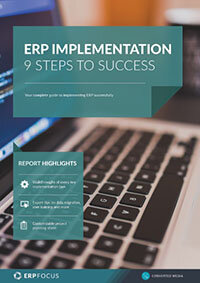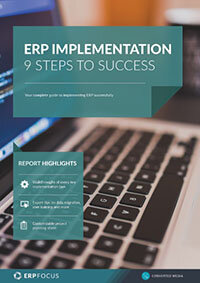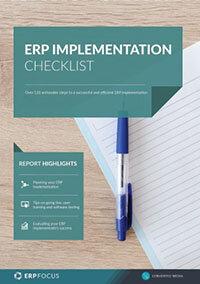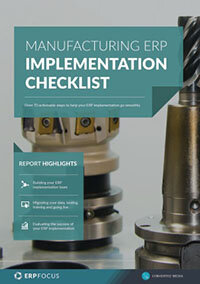4 Reasons Why ERP User-Adoption Is Low
Deep data systems are complex beasts, particularly when a system touches virtually every level in an enterprise. As a technical variant, ERP systems offer even more challenging concerns since, in this case not only are they supposed to act and interact, they are critical to the promise of extended performance over time.
Consequently, any bulky ERP system is problematic, but resources under-utilization is particularly difficult to deal with, since it leads to reduced near-term efficiencies, but worse, can ultimately grind a perfectly good system to a halt. Why this happens is not a simple question to answer, however, there are typical issues that appear when ERP user adoption is poor.
Weak Training Programs:
Complex ERP system are just that; complex. As a result, if one finds that a newly mounted system is under-utilized, chances are that weak training processes are involved some way or the other. It could be that the enterprise thought that ERP training should operate as more of an orientation, rather than a comprehensive course of education. Or it could be that the training course was compressed due to operational constraints. Nevertheless, if someone isn’t getting the memo, immediately execute a series of refresher programs until everyone gets on the same page.
Value After The Fact
Efficient involvement with an enterprise ERP system requires that every resource, everywhere, has to sign on to the premise of what is happening. However, for one reason or the other, enterprise leaders sometimes forget the people who turn the wheel every day, and don’t bother to educate them properly about the positive nature of what’s coming their way. When this happens, as soon as the new ERP client appears on their smart devices, or workstations, the cadre immediately goes into “change sucks” mode, usually leading to nothing but bad feelings for an extended period of time. The impact here is simple, no work, no production. But if one’s enterprise ‘needs’ production to survive, the inverse impact is, well, not good at all.
Errors In Data Migration
This failure is not only dumb it’s, well, dumber than dumb. Think of it this way; here one is with a great new ERP system ready to demonstrate, and required data is missing, corrupt, inaccurate, or entirely irrelevant to requirements of your enterprise population. Suddenly, what was an important event, becomes, who cares? And once one loses momentum its really difficult to turn it around, and get everyone going in the right direction again.
Passive v. Active Support
Aside from data migration issues at the outset, the only thing worse for new ERP momentum is lax IT, or line management support, once the ship sets sail. It could be that technical training is weak, or overall management leadership is equally ineffective, but either way, momentum is critical to enterprise efficiency when encouraging ERP user adoption in the early days.
So, there you go. But remember, like any other highly complex system there are three critical elements to successful enterprise operations; hardware, software, and wetware, but the latter element will always trump the other two.
Free white paper

ERP Implementation: 9 steps to success
The 9 proven steps you should follow when implementing ERP

Featured white papers
-

ERP Implementation: 9 steps to success
The 9 proven steps you should follow when implementing ERP
Download -

ERP Implementation Checklist
Over 120 actionable steps to implementing a new ERP successfully
Download -

Manufacturing ERP Implementation Checklist
Over 70 actionable steps to rolling out new manufacturing ERP software
Download
Related articles
-

ERP implementation plan (ERP implementation process guide)
Everything you need to know about running a successful ERP implementation - and we mean everything
-

How the right ERP can help you launch a successful omnichannel business
Petersen Zhu, CEO of DigitBridge and Vibes Base, shares how to create a scalable omnichannel stra...
-

The case for multi-tier ERP implementations
Learn more about multi-tier ERP implementation and why you might need one

